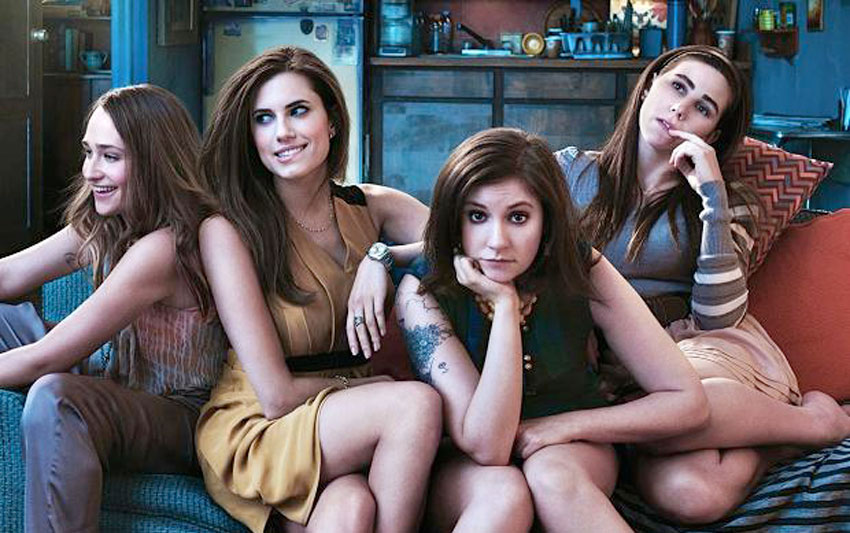By Sasha Moedt (The Cascade) – Email
Print Edition: February 25, 2015

Not every show that passes the Bechdel test is feminist, but every feminist show will pass the Bechdel test. Lena Dunham’s Girls certainly passes the Bechdel test, but by season four, there are serious criticisms to be raised about the show.
It’s difficult to decipher whether a show is feminist-friendly. The characters don’t have to be feminists or make choices in line with feminist values. But there should be a representation of feminist (and everyday female) concerns — body rights and image, shaming, harassment, rape and consent, sexual relationships, and so forth.
Girls takes these issues and weaves it into the story. And it’s certainly not didactic. This isn’t a show about feminists owning it. It’s about four girls navigating adulthood in an extremely sexist world. And they make questionable choices. They have extremely disempowering sexual relationships, they’re completely selfish, and they absolutely abuse their friendships.
But, all feminists should keep in mind Jessica William’s astute comment: “Lean the F*** away from me.” It’s easy to jump to conclusions and deliver judgement on women’s choices. But it certainly doesn’t help, only adding to the culture of hypercritical judgement we place on women and their life choices.
Flawed characters are the most lovable ones, but when it comes down to it, lovability depends on the flaw. Marnie, Hannah, Shoshanna, and Jessa all share one thing — they uphold self-interest above all else. For a show that is focused on their friendship, that’s pretty depressing.
There really aren’t any redeeming moments. Even when one character bares her raw emotional wreck, the other friend will only try to top it with her scars. They are burnt-out and detached, openly vulnerable yet closed off from each other. They’re products of living in a vicious world, and have become vicious themselves.
Season four sees all the characters in this state. The first couple seasons held my interest because Shoshanna was still fresh and cheerful, but at this point life’s beaten that out of her.
As a comedy, the fourth season is definitely the darkest yet. Because the characters are so jaded, the humour has become reminiscent of Louie — but unlike Louie, the plot twists give Girls more of a dramatic feel. And season four sees it getting a little bit overdone. Rather than a consistent, naturally driven plot, there are spikes of drama. It feels unnatural and forced.
Why is it called Girls, anyway? Shows that are solely focused on men aren’t called Boys. Is Lena Dunham calling attention to the fact that there are so few shows about just that — girls? The name implies that the show is a representative of everyday female life, like some kind of Planet Earth series.
If Girls is a representation of American womanhood, there is a serious lack of diversity. All four main characters are white, straight, able-bodied, and middle class. None of the secondary characters move away from that, save Hannah’s gay ex-boyfriend, Elijah. For a show set in New York, that’s pretty pathetic.
Ultimately, I require more out of a show than passing the Bechdel test. While Girls is steeped in a world of feminist issues, the representation of actual girls falls flat. The show is constantly given adrenaline shots to the heart by the writers, and frankly, it becomes boring.


